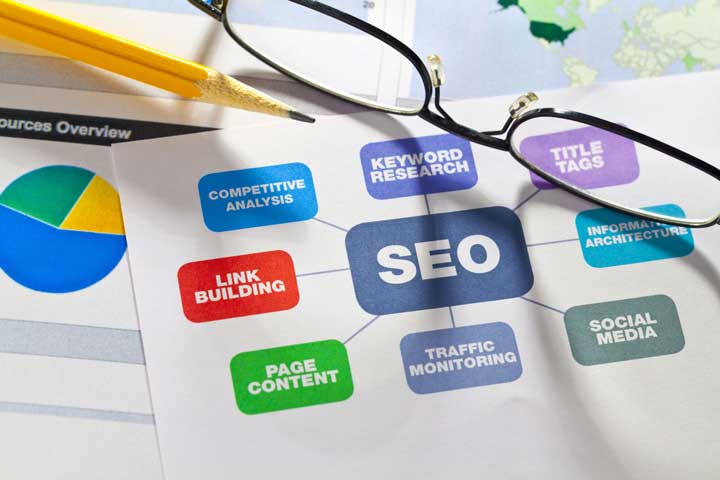On-page SEO is one of the most important factors in ranking your website high in search engine results pages (SERPs). Search engines use a variety of signals to determine where your website should rank for a given query.

While off-page SEO signals like link building and social media engagement are important, on-page SEO signals like title tags, meta descriptions, and keyword usage are what will really help you rank higher in SERPs.
Here are just a few reasons why on-page SEO is so important:
- It helps search engines understand what your website is about
When you optimize your website’s pages for specific keywords, you’re helping search engines understand what your website is about. This is especiallyimportant for small businesses and websites with less than stellar off-page SEO.
- It can help you rank higher in SERPs
Because on-page SEO signals are one of the main factors search engines use to determine your website’s ranking, it’s important to make sure your website is optimized for your target keywords. If you’re not sure how to do this, there are plenty of resources and tools available (including our very own Yoast SEO plugin) to help you out.
- It makes your website more user-friendly
On-page SEO isn’t just about impressing search engines—it’s also about making your website more user-friendly. By optimizing your website for users, you’re more likely to rank higher in SERPs and get more organic traffic. And, as we all know, organic traffic is the best kind of traffic.
- It’s a long-term strategy
On-page SEO is a long-term strategy that, if done correctly, can pay off for years to come. That’s because once you’ve optimized your website for certain keywords, you’re unlikely to have to do it again (unless you want to target new keywords). So, although it may take some time and effort up front, on-page SEO is definitely worth it in the long run.
on page optimization
you should keep in mind
There are many on page seo factors that you need to keep in mind if you want your website to rank high in the search engines. Here are some of the most important ones:

- Title tags – The title tag is one of the most important on page seo factors. Make sure that your title tags are unique and relevant to your content.
- Meta tags – Meta tags are also very important on page seo factors. Make sure that your meta tags are relevant to your content and include keywords that are related to your business.
- Header tags – Header tags are another important on page seo factor. You should use header tags to structure your content and make it easy for the search engines to understand.
- Keywords – Keywords are one of the most important on page seo factors. Choose your keywords carefully and use them throughout your content in a way that is relevant and natural.
- Links – Links are another important on page seo factor. Make sure that your links are relevant to your content and use keyword-rich anchor text.
- Image tags – Image tags are also important on page seo factors. Use images that are relevant to your content and include keywords in the image tags.
- Sitemaps – Sitemaps are an important on page seo factor.They help the search engines to understand your website structure and find your content.
- robots.txt – The robots.txt file is an important on page seo factor. It tells the search engines what they can and cannot index on your website.
- Site speed – Site speed is an important on page seo factor. Make sure that your website loads quickly so that the search engines can crawl it effectively.
- Mobile-friendliness – Mobile-friendliness is an important on page seo factor. Make sure that your website is designed to be mobile-friendly so that it can be easily accessed by users on all devices.
What is On Page SEO
On page SEO is one of the most important aspects of search engine optimization. It is the process of optimizing individual web pages in order to rank higher and earn more relevant traffic in search engines. On page SEO includes a variety of factors, such as keyword research and selection, meta tags, header tags, backlinking, and much more. When all of these elements are optimized, it can lead to better visibility and increased traffic from organic search results.

One of the first steps in on page SEO is keyword research. This helps you to identify which keywords or phrases are most likely to bring users to your website. Once you have identified these keywords, you can then incorporate them into your website’s title, Meta tags, headers,and content.
Backlinking is another important aspect of on page SEO. This refers to the process of linking to other websites or web pages that are relevant to your own. Backlinks help to improve your website’s search engine ranking and can also bring more traffic to your site. In order for backlinks to be effective, they should be from high-quality websites that are relevant to yours.
Meta tags are another important element of on page SEO. Meta tags provide information about your website to search engines, such as its title, description, and keywords. This information helps search engines index your website and determine its relevance to users’ searches.
on page optimization checklist
- Make sure your website is responsive
- Optimize your title tags
- Optimize your meta tags
- Use keyword-rich titles
- Use keyword-rich descriptions
- Use keyword-rich headings
- Use keyword-rich alt text
- Optimize your anchor text
- Optimize your images
- Create rich content
- Use social media to promote your content
- 12.Submit your website to search engines and directories
- Make sure your website is fast and responsive. No one wants to wait around for a slow website to load, so make sure your site is optimized for speed.
- Use relevant keywords throughout your website. This will help your site rank higher in search engine results pages (SERPs), and make it more likely that people will find your site when they’re searching for information on the topics you cover.
- Structure your website’s pages using clear and logical organization. This will help both users and search engines understand the content on your site, and make it more likely that people will find the information they’re looking for.
- Optimize your website’s images and other media files. Large or unoptimized files can slow down your website, so make sure all of your site’s media is properly sized and compressed.
- Use descriptive and keyword-rich titles and meta tags. These are the brief descriptions that appear in search engine results pages (SERPs), and they can help improve your click-through rate (CTR) by making your site more visible and relevant to potential visitors.
- Create fresh, original, and engaging content. This is one of the most important aspects of on-page optimization, as it’s what will ultimately keep people coming back to your site. Make sure your content is well-written, informative, and interesting, and update it regularly to ensure that it remains relevant.
